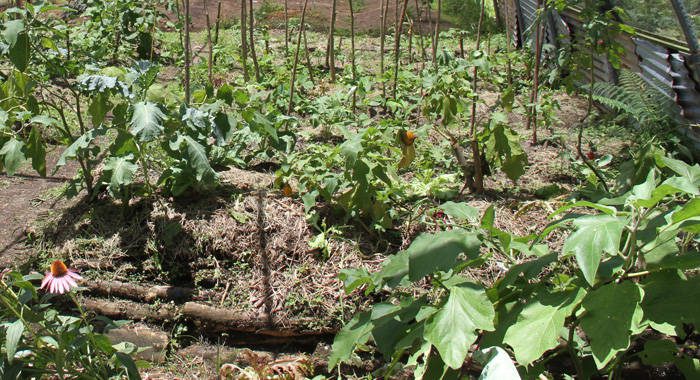Richmond Vale Academy, in collaboration with the Ministry of Agriculture, Ministry of Sustainable Development, Chatoyer Garden, and the St. Vincent and the Grenadines Preservation Fund, will launch its home garden project on Monday, June 5.
The launch takes place at Richmond Vale Academy in Richmond, beginning at 1 p.m. with a tour of the organic gardens and is open to the public.
The Pass-It-On Model Garden Project aims to build the capacity of local communities to live more sustainably, cost effectively and healthily by creating model gardens for families (or farmers) and for people to pass on what they have learnt, to inspire others to start their own gardens.
This project uses crop diversification and organic principles of production as a means of adapting to the effects of climate change while also using agriculture as a means of environmental protection.
Using this model, a household or a farmer can use 800 square feet of land (a plot measuring 20 x 40 feet) to produce 130 heads of lettuce every two months, along with 36 roots of chives soon after. Two intensive vegetable garden beds can produce okra, eggplant and hot peppers are other vegetables. An animal component can consist of a coup for raising two rabbits or layer five layer chickens.
Under the project, farmers will be taught how to harvest and store rainwater to ease the dependence on pipe-borne water during drier periods. They will also learn how to use drip irrigation to use efficiently less water for cultivation.
The project comes at a time when St. Vincent and the Grenadines and many developing countries continue to struggle with a high food import bill. Further, it will address ongoing concerns about the chemicals used in commercial agriculture, which is neither environmentally or financially sustainable, or climate smart.
Stina Herberg, director of Richmond Vale Academy, said her institution is excited about the launch and what it promises for the nation.
Herberg said: “As a country, we used to be more self-sufficient with food and this project to revitalise backyard gardens is part of a broader vision to help with improving our food security.”
She pointed out that backyard gardens are a crucial element in attempts to protect and promote biodiversity.
“Much commercial farming in St. Vincent is monoculture and as this is not something that will change overnight. However, home gardens are an excellent first step to get more people involved in sustainable farming,” Herberg said.
She noted that the project uses crop diversification and organic principles of production as a means of adapting to the effects of climate change while also using agriculture as a means of environmental protection.
The project is part of Richmond Vale Academy’s “St. Vincent Climate Compliance Conference 2012 – 2021”. The 10-year conference is helping to make St. Vincent more climate-compliant in terms of food, water, energy secure and adapting to and mitigating against climate change. Two hundred local and international participants have joined the conference programme since 2012. The St. Vincent Climate Compliance Conference works with a diverse range of stakeholders, cultural, social and economic actors, families, international volunteers, community organisations, institutions and government bodies.







Fantastic project. Well done to Richmond Vale Academy.